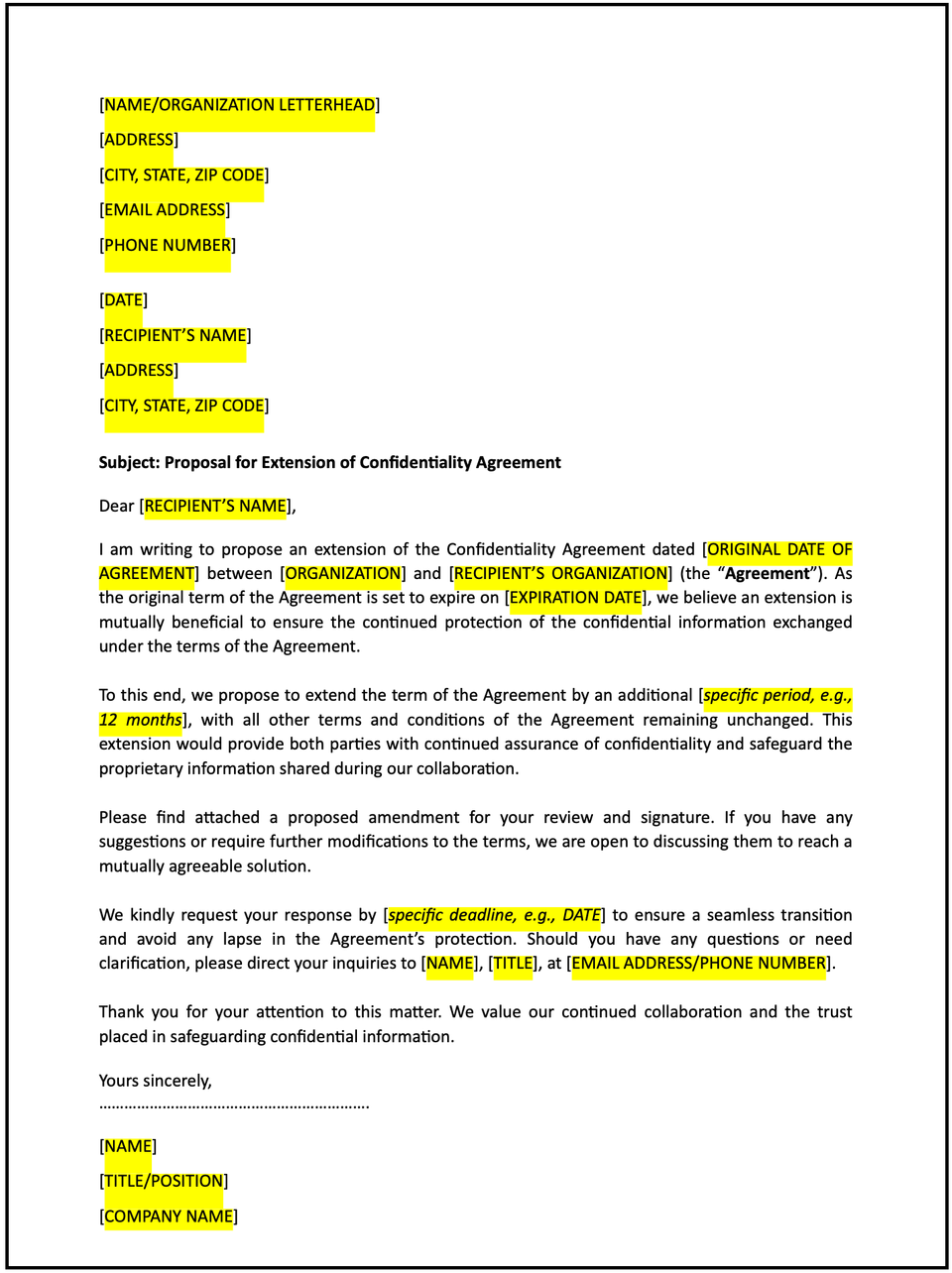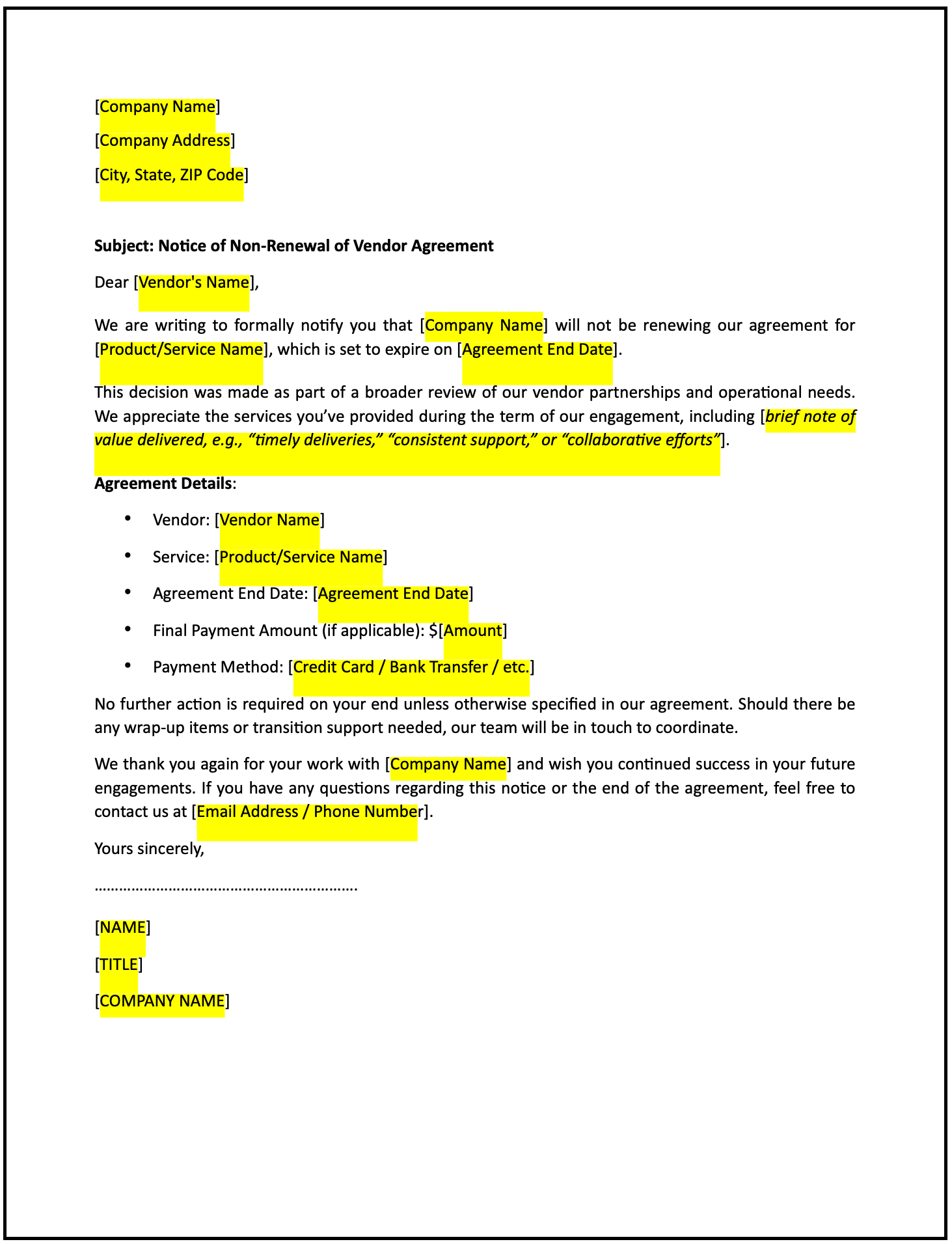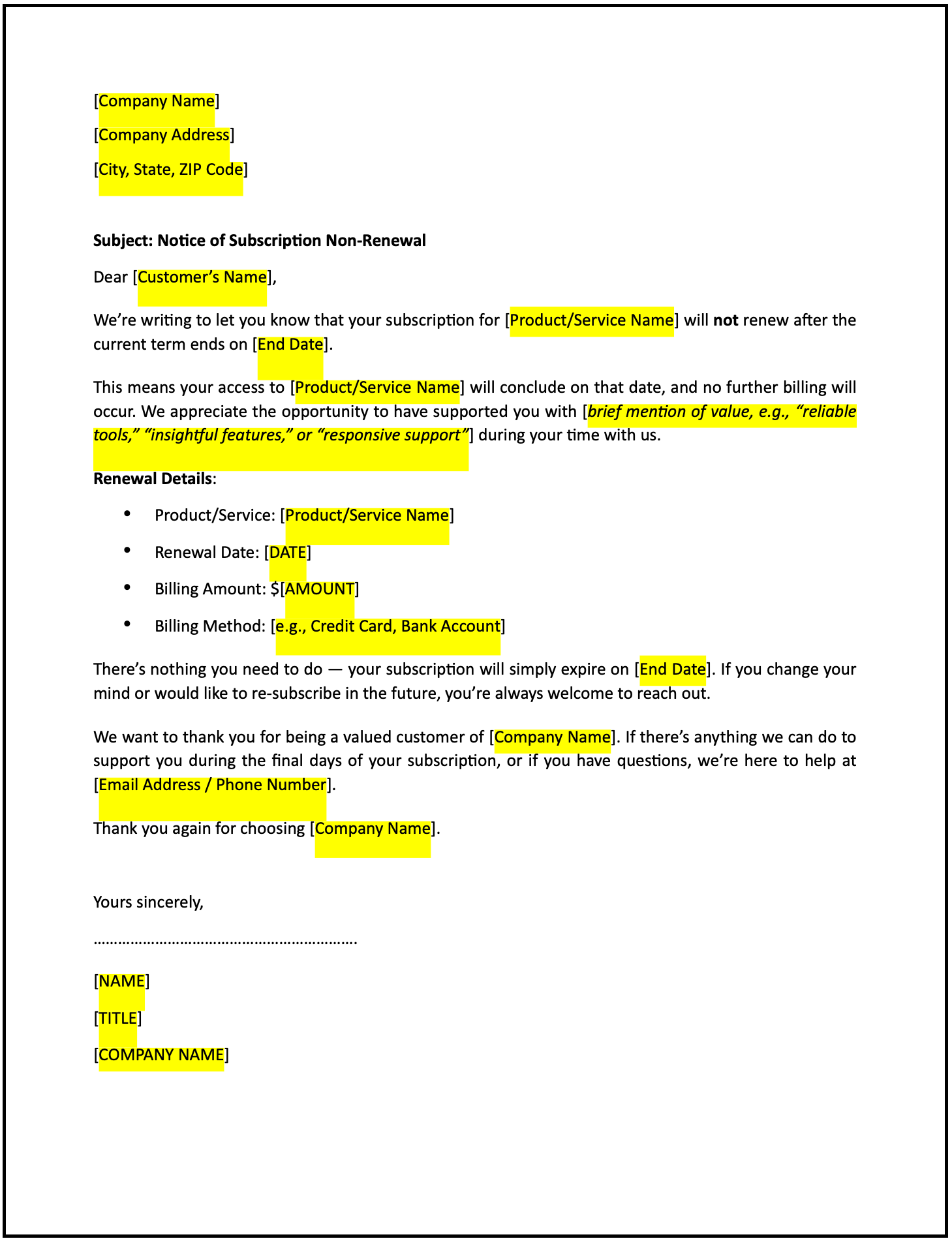Letter of proposal for confidentiality agreement extension: Free template

Letter of proposal for confidentiality agreement extension
A letter of proposal for confidentiality agreement extension is a formal communication used to request an extension of an existing non-disclosure agreement (NDA). This letter outlines the reasons for the extension, the proposed new terms, and the mutual benefits of continuing confidentiality obligations.
How to use this letter of proposal for confidentiality agreement extension
- Open with an introduction: Address the recipient respectfully and reference the existing NDA, including the agreement date or other identifying details.
- State the purpose: Clearly communicate your intent to propose an extension of the confidentiality agreement.
- Provide context: Briefly explain the rationale for the extension, such as ongoing business discussions, projects, or the need for continued confidentiality.
- Specify proposed terms: Detail the duration of the extension and any updates or modifications to the agreement, if applicable.
- Highlight mutual benefits: Emphasize how extending the agreement protects both parties and fosters ongoing collaboration.
- Invite collaboration: Suggest a meeting or discussion to finalize the extension and address any concerns.
- Maintain a professional tone: Ensure the letter is clear, respectful, and focused on fostering trust and collaboration.
- Provide contact information: Include details for the recipient to respond with questions or confirm their agreement to the extension.
Benefits of using a letter of proposal for confidentiality agreement extension
This letter ensures a structured and professional way to propose an NDA extension while fostering trust and alignment.
- Promotes alignment: Clearly communicating the proposal ensures mutual understanding and agreement.
- Reflects professionalism: A well-crafted letter demonstrates respect and a commitment to maintaining confidentiality.
- Encourages collaboration: Highlighting mutual benefits inspires openness to the extension.
- Builds trust: Transparent communication strengthens the business relationship.
- Supports continuity: Extending the NDA ensures the uninterrupted protection of sensitive information.
Tips for writing an effective letter of proposal for confidentiality agreement extension
- Be specific: Clearly reference the existing NDA, including its date and scope, and specify the proposed new duration.
- Use professional language: Maintain a respectful and constructive tone to foster collaboration.
- Provide context: Briefly explain the need for the extension and its importance to ongoing business activities.
- Highlight mutual benefits: Emphasize how the extension protects both parties and supports continued collaboration.
- Include actionable steps: Share instructions for discussing or formalizing the extension, such as scheduling a meeting or signing an addendum.
- Keep it concise: Focus on the essential points while ensuring the tone is professional and engaging.
Frequently asked questions (FAQs)
Q: What details should I include in this letter?
A: Include references to the existing NDA, the reason for the extension, and the proposed new duration or terms.
Q: Should I personalize the letter?
A: Yes, addressing the recipient by name and referencing the specific NDA demonstrates attentiveness and professionalism.
Q: Who typically sends this letter?
A: Legal teams, compliance officers, or business owners typically send this letter.
Q: How formal should this letter be?
A: The tone should be professional, respectful, and focused on fostering collaboration.
Q: When should this letter be sent?
A: Send the letter well before the NDA’s expiration date to allow sufficient time for review and agreement.
Q: Can this letter include additional updates to the NDA terms?
A: Yes, proposing updates alongside the extension ensures the agreement remains relevant and comprehensive.
Q: Is acknowledgment from the recipient required?
A: While not mandatory, requesting acknowledgment ensures the recipient understands and agrees to the proposal.
This article contains general legal information and does not contain legal advice. Cobrief is not a law firm or a substitute for an attorney or law firm. The law is complex and changes often. For legal advice, please ask a lawyer.


